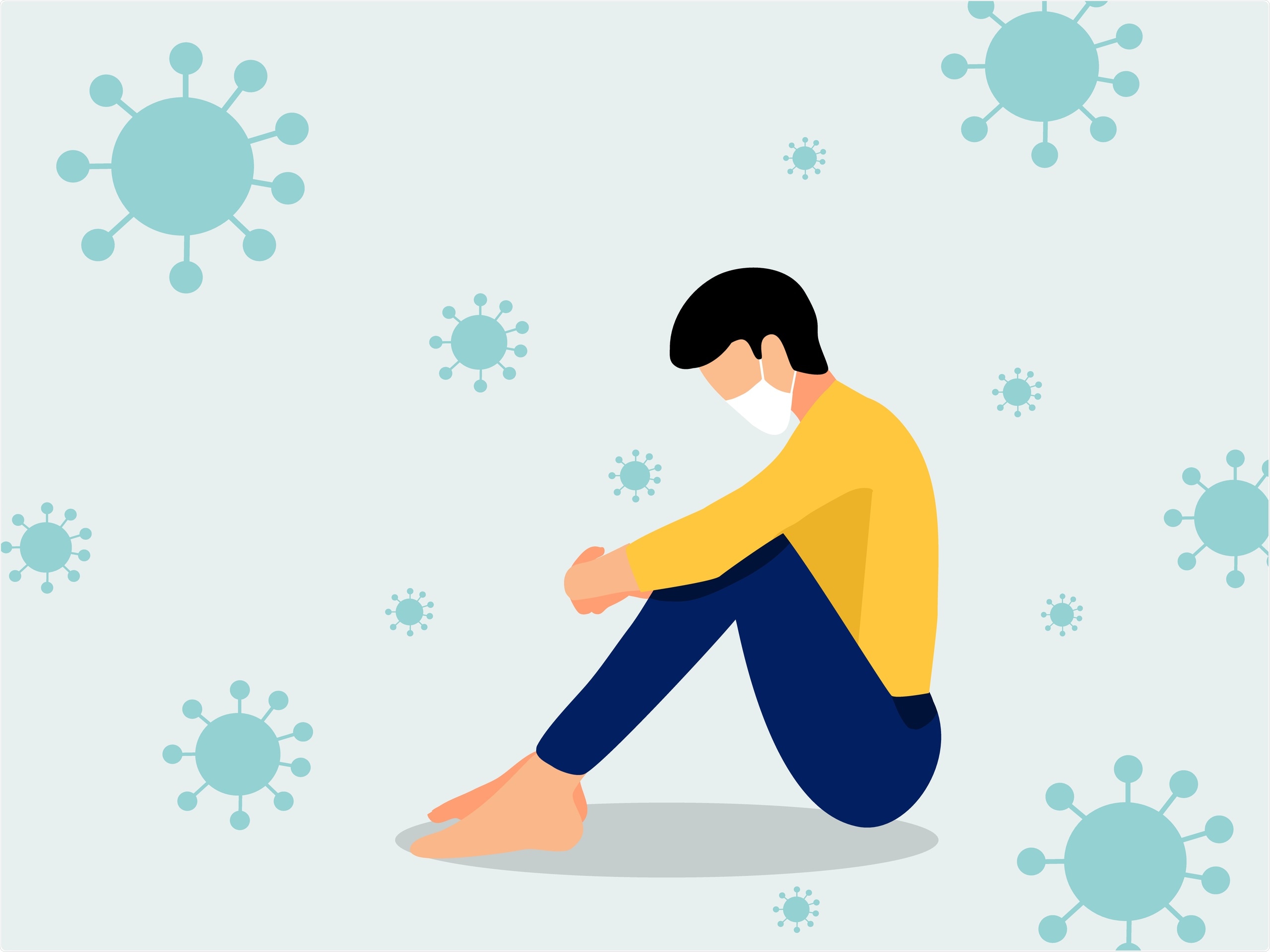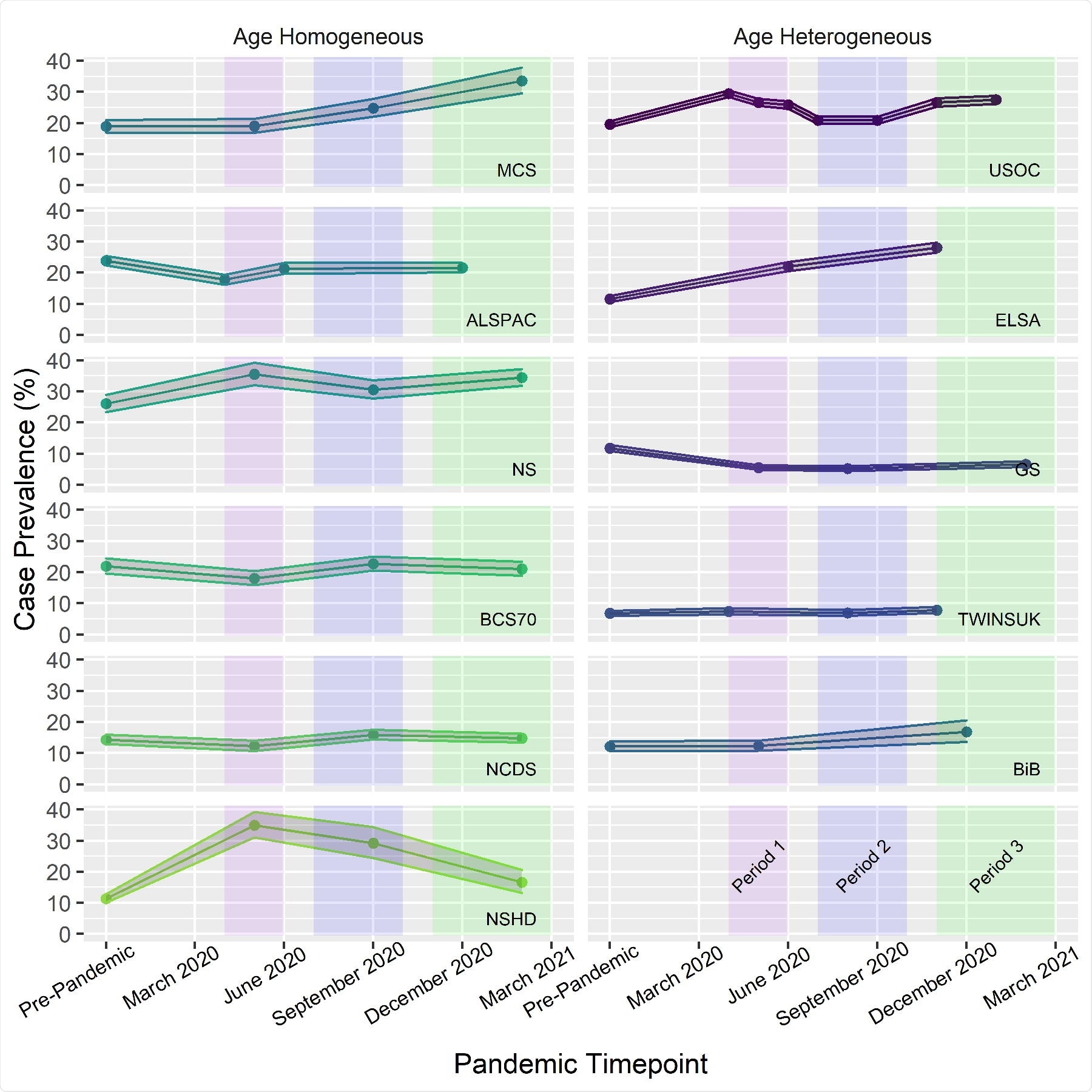Study shows sustained deterioration of mental health in UK across COVID pandemic

The ongoing coronavirus disease 2019 (COVID-19) pandemic is caused by a novel coronavirus, namely, severe acute respiratory syndrome coronavirus-2 (SARS-CoV-2), which is highly virulent and infectious. In order to prevent the spread of the disease, social restrictions have been imposed that have adversely affected people's mental health. Lockdown policies, in particular, have adversely affected mental health.

Background
On 23rd March 2020, the UK Government had announced a strict lockdown, which continued till June 2020. However, national lockdowns were re-implemented from early November 2020. Previous studies associated with the evaluation of mental wellbeing during the first lockdown showed conflicting results, i.e., some studies reported a decline in psychological welfare. In contrast, others revealed no change in mental conditions.
Unsurprisingly, the COVID-19 pandemic showed disproportionate impacts among different age and sociodemographic groups. For example, as older adults were considered at a greater risk of severe infection, they were advised to stay at home and, therefore, shielded from any association or face-to-face contact. The pandemic disproportionately impacted the younger individuals, women, and ethnic minorities, owing to job losses and precarity.
A New Study
To date, it is not clear how the COVID-19 pandemic and implementation of various preventive strategies impacted mental health or which group of people were most affected by them. To address these issues, scientists have conducted coordinated analyses that included eleven UK longitudinal population studies, comprising data from before and throughout the pandemic.
This study is available on the medRxiv* preprint server. This study aimed to estimate how the pandemic affected the mental health of the population and how these conditions have progressed during the first year of the pandemic as lockdown restrictions changed. Additionally, researchers also aimed to examine inequalities, in these impacts, based on age, sex, ethnicity, education level, and UK county.
In this study, the prevalence of poor mental health was determined across the pandemic at three time periods, i.e., (a) initial lockdown (TP1, March-June 2020); (b) easing of restrictions (TP2, July-October 2020); and (c) a subsequent lockdown (TP3, November 20-March 2021). Researchers used multi-level regression to investigate the changes in psychological distress compared to pre-pandemic levels and document the unequal impacts based on sex, ethnicity, education, age, and UK county.
Main Findings
This study provided a comprehensive image of the evolution of mental health throughout differing lockdown periods during the COVID-19 pandemic. The overall result indicated that the mental wellbeing of the UK population declined since the onset of the pandemic. Interestingly, this condition did not improve during the period when the lockdown measures were temporarily relaxed in the UK during the summer of 2020.

This study reported that all groups did not undergo deterioration of mental health to a similar extent. For instance, women with a degree-level education, and young adults (aged 25-34 and 35-44) were impacted most. These groups went through maximum psychological distress during the pandemic. The reasons why women experienced more mental distress during the pandemic are presumably because of increased childcare responsibilities, more significant economic impacts, and reports of large increases in gender-based violence. The cause of subpopulation differences remains unclear; however, it might be due to changes in employment, disruptions to social interactions, and shifts in parental responsibilities. This result showed the existence of exacerbating pre-pandemic mental health inequalities and vast gender inequalities in mental health.
Importantly, the current study indicated that the initial declines in mental wellbeing were not a transient reaction to an unprecedented event; instead, it was an early indication of a steady decline from pre-pandemic levels. The psychological distress in the population is complex as the ongoing pandemic has caused substantial economic and health crises, behavioral changes, and bereavement. Also, restricted social lives and disturbances in daily life contributed to increased mental health problems during the pandemic.
Strength and Weakness of the Study
The authors highlighted the study's main strength to harness high-quality existing longitudinal studies and obtain robust pre-pandemic baseline data. The data was able to capture different periods of the pandemic. The impacts of the COVID-19 policy on individuals were analyzed particularly during the initiation and removal of lockdown measures.
The study contains certain methodological limitations. This is why it could not ascertain whether the changes in mental health were due to the COVID-19 pandemic or related policy responses. As no other alternative event occurred, it is safe to presume that the cause of the psychological distress is due to the pandemic and related issues. Also, the broad consistency in the dataset provided reassurance that the key conclusions are definitive, even if the magnitude of the mental distress cannot be confirmed.
*Important Notice
medRxiv publishes preliminary scientific reports that are not peer-reviewed and, therefore, should not be regarded as conclusive, guide clinical practice/health-related behavior, or treated as established information.
- Patel, K. et al. (2021) Psychological Distress Before and During the COVID-19 Pandemic: Sociodemographic Inequalities in 11 UK Longitudinal Studies, medRxiv, 2021.10.22.21265368; doi: https://doi.org/10.1101/2021.10.22.21265368, https://www.medrxiv.org/content/10.1101/2021.10.22.21265368v1
Posted in: Medical Research News | Women's Health News | Disease/Infection News
Tags: Coronavirus, Coronavirus Disease COVID-19, Education, Evolution, Mental Health, Pandemic, Respiratory, SARS, SARS-CoV-2, Severe Acute Respiratory, Severe Acute Respiratory Syndrome, Syndrome

Written by
Dr. Priyom Bose
Priyom holds a Ph.D. in Plant Biology and Biotechnology from the University of Madras, India. She is an active researcher and an experienced science writer. Priyom has also co-authored several original research articles that have been published in reputed peer-reviewed journals. She is also an avid reader and an amateur photographer.
Source: Read Full Article